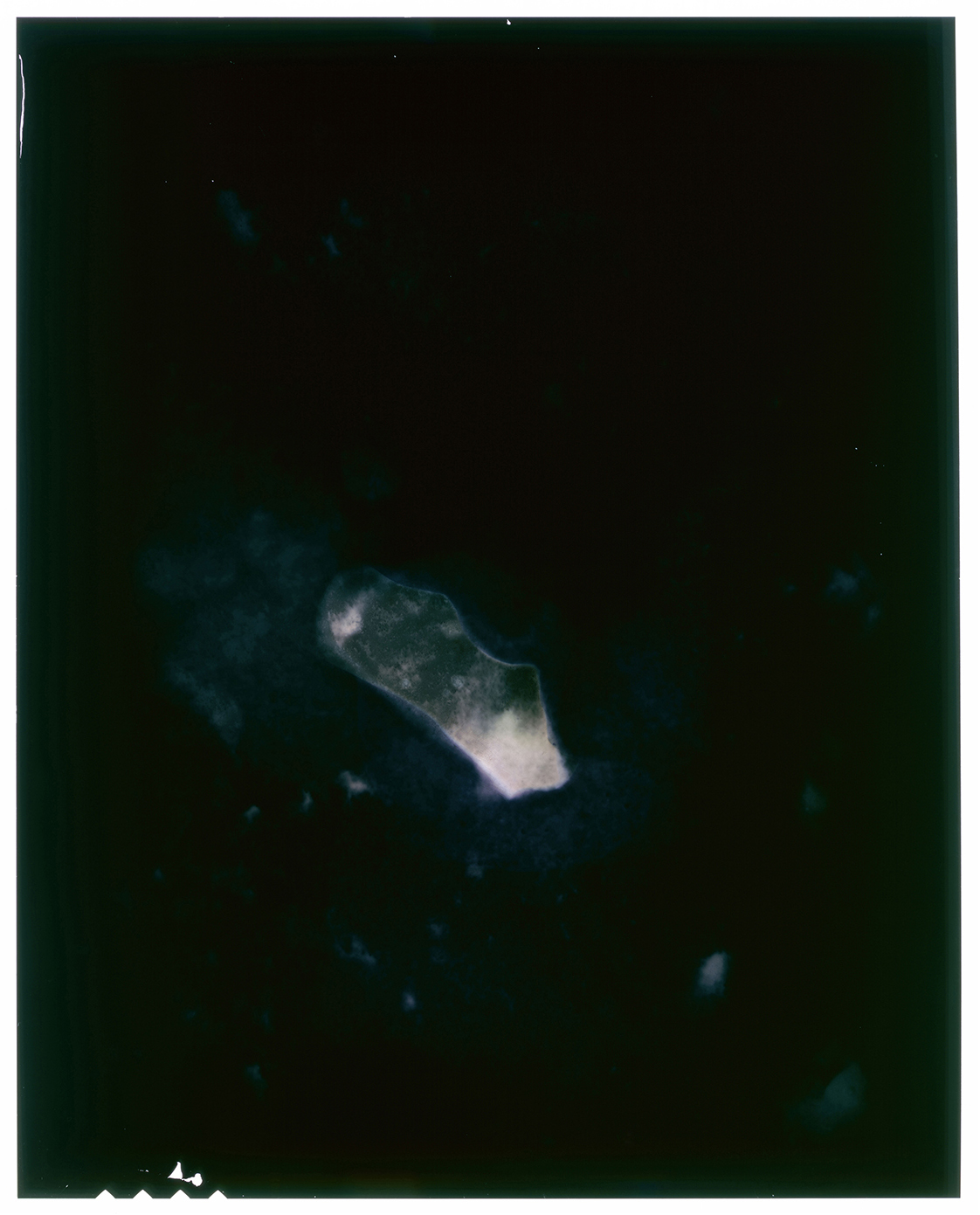In Europe, 60-70% of soils have been diagnosed
as ‘non healthy’ (EC, 2020). The health of agricultural soils is crucial, not
only for sustainable food production but also for the provision of ecosystem
services. The complex soil ecosystem is highly evolved and sophisticated. It
processes organic waste into soil. It filters and cleans much of the water we
drink and the air we breathe by retaining dust and pathogens. It plays a large
role in how much carbon dioxide is in the atmosphere.
Mudgrams are produced by using soil as an image generator. The soil specimens come from contaminated areas containing large amounts invisible (chemical) elements (such as PFAS, sulfates, nitrates, etc.). In letting the contaminated soil interact with the photo-chemical layer, the polluted elements and phenols in the soil start to leave an imprint onto the image, a trace of their chemical co-operation. The Mudgrams therefore move away from an optical relationship with the world, towards a more direct approach based on a direct, material contact between and its subject. As a result of a process of co-authorship with earthly matters to produce a visual remnant of their interaction, they occupy a middle position between a chemigram and a photogram.
Mudgrams are produced by using soil as an image generator. The soil specimens come from contaminated areas containing large amounts invisible (chemical) elements (such as PFAS, sulfates, nitrates, etc.). In letting the contaminated soil interact with the photo-chemical layer, the polluted elements and phenols in the soil start to leave an imprint onto the image, a trace of their chemical co-operation. The Mudgrams therefore move away from an optical relationship with the world, towards a more direct approach based on a direct, material contact between and its subject. As a result of a process of co-authorship with earthly matters to produce a visual remnant of their interaction, they occupy a middle position between a chemigram and a photogram.
This project is ongoing.
Mudgram, Dries Segers in collaboration with polluted soils, 2023-2024, photographic negatives, different sizes
Locations of different soils are: Terneuzen; 3M, Zwijndrecht; ASB Recycling, Genk; INEOS, Antwerp; Gravel pit, Incheville and Bouvaincourt; Arcelor Group, Ghent&Genk Mine field, Waterschei; Beton factory, Hoboken; Brick factories, Niel; Former sites of Ford Genk,
this project is part of the research Ask your hands to know the things they hold, held at the Royal Academy of Fine Arts Antwerp, Thinking Tools research group
Mudgram, Dries Segers in collaboration with polluted soils, 2023-2024, photographic negatives, different sizes
Locations of different soils are: Terneuzen; 3M, Zwijndrecht; ASB Recycling, Genk; INEOS, Antwerp; Gravel pit, Incheville and Bouvaincourt; Arcelor Group, Ghent&Genk Mine field, Waterschei; Beton factory, Hoboken; Brick factories, Niel; Former sites of Ford Genk,
this project is part of the research Ask your hands to know the things they hold, held at the Royal Academy of Fine Arts Antwerp, Thinking Tools research group
Mudgrams, different original negatives on lightbox























